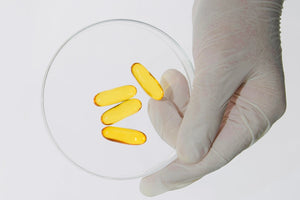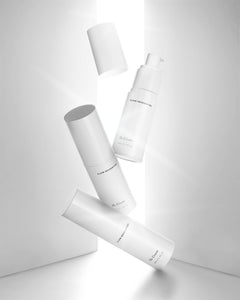In recent years, there has been a growing concern about the environmental impact of various industries, including the skincare and cosmetics sector. As consumers become more conscious of sustainability, it is crucial to explore and shed light on the benefits of using petroleum-byproduct ingredients in these products. Contrary to popular belief, these ingredients can offer unique advantages in terms of environmental impact and sustainable practices. In this article, we will delve into the positive environmental aspects associated with petroleum-byproduct ingredients—such as mineral oil or petrolatum/petroleum jelly—in your skincare.
1. Enhanced Resource Efficiency
One of the main benefits of utilizing petroleum-byproduct ingredients is their resource efficiency. These ingredients are derived from petroleum refining processes, which maximize resource utilization. By utilizing byproducts that would otherwise go to waste, companies can minimize their environmental impact. This approach ensures that valuable resources are used efficiently, which supports the principles of sustainability.
2. Reduced Carbon Footprint
When compared to many plant-based ingredients, petroleum-byproduct ingredients often have a lower carbon footprint. The petroleum refining industry aims to optimize energy efficiency, which can result in a lower overall greenhouse gas emissions profile. By utilizing these ingredients, companies are indirectly contributing to the reduction of carbon dioxide and other greenhouse gas emissions.
3. Conservation of Natural Resources
The extraction of raw materials for skincare and cosmetic products can often deplete natural resources and harm ecosystems. However, incorporating petroleum-byproduct ingredients minimizes the need for natural resource extraction, helping to conserve vital resources such as plant-derived oils and extracts. This approach fosters the protection of biodiversity and reduces the strain on land and water resources.
4. Increased Stability and Shelf-Life
Another advantage of petroleum-byproduct ingredients is their ability to improve the stability and prolong the shelf-life of skincare and cosmetic products. These ingredients are often utilized as emollients, preservatives, or texturizing agents, providing stability and protection against microbial growth. As a result, it reduces product wastage, as longer shelf-life decreases the frequency of product disposal due to expiration.
5. Safety and Quality
Petroleum-byproduct ingredients used in skincare and cosmetic products undergo rigorous testing and quality control measures to ensure consumer safety. By adhering to strict regulatory standards, these ingredients offer a high level of quality and performance in product formulation. Consumers can have confidence in using these products, knowing they have been tested extensively for safety and efficacy. It's even one of the most effective occlusive in a topical delivery system, often recommended by physicians across the globe due to its safety track records.
REFERENCES
- Li, Z., Ma, F., Shrestha, P., & Chen, C. (2017). Life Cycle Assessment of Petrochemical-Based and Bio-Based Plastics. Polymers, 9(4), 189.
- Cheah, Y. K., Aziah, A. A. N., Ng, S. P., & Ahmad, S. H. (2018). Review: Chemicals in Cosmetics: Analytical Methods to Monitor Phthalates. International Journal of Environmental Research and Public Health, 15(12), 2842.
- Li, Y., Yu, J., Lu, Y., & Yuan, Y. (2019). Eco-Efficiency and Its Driving Factors in the Petroleum Refining Industry of China. Energies, 12(6), 1018.
- Dweiri, R., Al Taweel, A., Baker, O., & Al Ajlouni, A. (2020). The Environmental Impact of the Petroleum Refining Sector in Jordan. Open Journal of Air Pollution, 9(01), 1-14.









